|
|
| |
| |
 |
PRODUCT DEVELOPMENT WORKSHOPS
|
| |
 |
|
The implementation of the project REDISCOVER has reached its first important stage, as project partners finalised their local repositories of Jewish Cultural Heritage and a Comprehensive web-based repository became complete. This laid the foundations of the product development workshop series.
You can find the complete repository on our website here.
The first element of the series was the Inventory Workshop that focused on the overview and discussion of local Jewish cultural heritage inventory. As a second step in the process, Capacity Building Workshops for local tourism development partners empowered participants to share ideas, develop joint initiatives and to engage in product development and implementation processes. Finally, the Match-making Workshop was organised in each partner city, involving local stakeholder groups, tourism service providers and related institutions.
|
|
| |
 |
JOINT TOURISM PORTFOLIO
|
| |
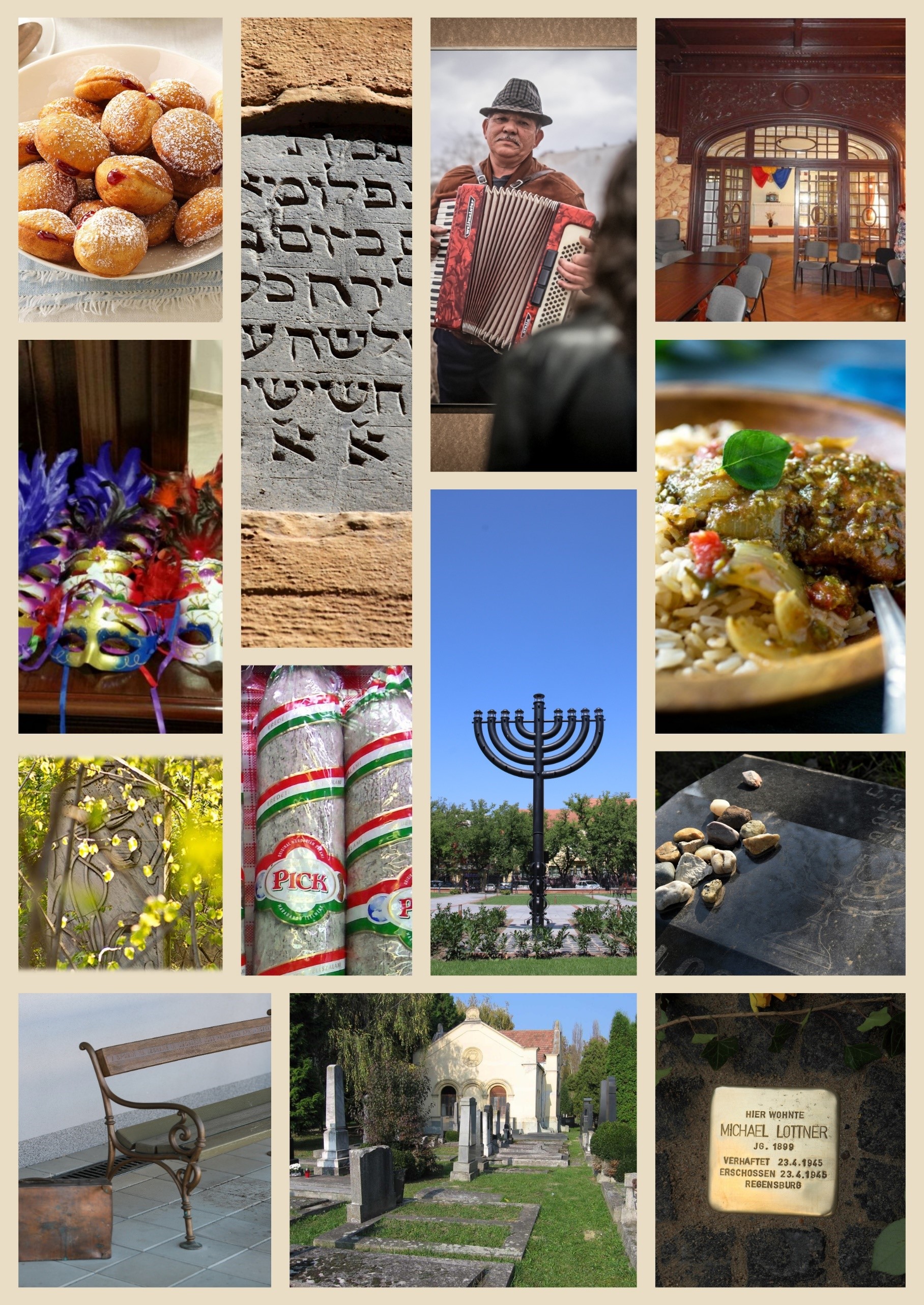 |
|
The second milestone in Rediscover project was the elaboration of the local tourism portfolios based on the results of product development workshops. Local portfolios of potential Jewish Cultural Heritage tourism products contain initial local product ideas and contain the most important facts about the locality and its tourism industry. These profiles identify the partners and potential connections to other national/international initiatives. Also, the local stakeholder groups’ active contribution and their relevant/updated local ideas and resources were channelled into the development process.
The local portfolios give comprehensive insights to the recent tourism industry trends in the project partner cities, enlisted all the collected JCH elements and identify five main clusters of tourism services and products, proposed joint thematic routes.
The document is available on the project website here.
The local portfolios can be found on the website as well here.
|
|
| |
 |
draft study
|
| |
 |
|
The Draft Study builds upon the local portfolios and the synergy-based Joint Project Portfolio.
In order to identify potential thematic routes and connections to larger scale national or European networks, a database of existing, related information services, tourism sales networks and cultural routes networks was built by project partners. Based on the information collected in the Draft Study and the Joint Project Portfolio, a Thematic Routes Workshop was organised for all project partners and ASPs in Banja Luka, Bosnia and Herzegovina.
Draft Study on Potential Thematic Routes is available on the project website.
|
|
| |
 |
pr handbook
|
| |
 |
|
Within the framework of Rediscover project, the Lead Partner prepared a PR Handbook for the partners helping them answering the visibility requirements. The handbook provides overview of the background knowledge, strategic fundamentals and good practices needed to better accomplish the aims of the Rediscover project.
The guide connects public relations to tourism as the fundamental tool to achieve visibility for the newly created tourist attraction. The soft approach of public relations could be a path to reach the local public, otherwise missed by tourism marketing. Most important tools like story-telling, personalisation as engaging methods of communication are highlighted, but also the classic online and offline tools are introduced as well.
|
|
| |
 |
coming soon...
|
| |
|
The project will reach an important stage of implementation in the coming months. Crucial to its success, the Transnational Jewish Cultural Heritage Thematic Initiatives Action Plan is to be developed, formulating primary business plans for the thematic routes identified by the Draft Study and the Thematic Routes Workshop. The Action Plan is to give due emphasis to not just implementation, but also to sustainability.
Within the framework of Work Package 5, actual testing of selected pilots will be implemented. The project offers a choice of three types of test activities, allowing for the development of creative cultural attractions, (events, exhibitions, programs, sites of interest), ITC-based presentation and visibility tools, and the integration of Jewish Cultural Heritage portfolios into international tourism information and sales services. Of the three options, the development of creative cultural attractions proves to become the most significant in the second half of 2020.
In order to enhance the visibility of the attractions developed within the framework of the project, a visibility workshop is to be organised in each partner city. In the course of the local visibility workshops, participants discuss applicable solutions, and identify potential visibility measures for their selected Jewish Cultural Heritage tourism products.
|
|
| |
 |
partner news - International Holocaust Remembrance Day 27 January 2020
|
| |
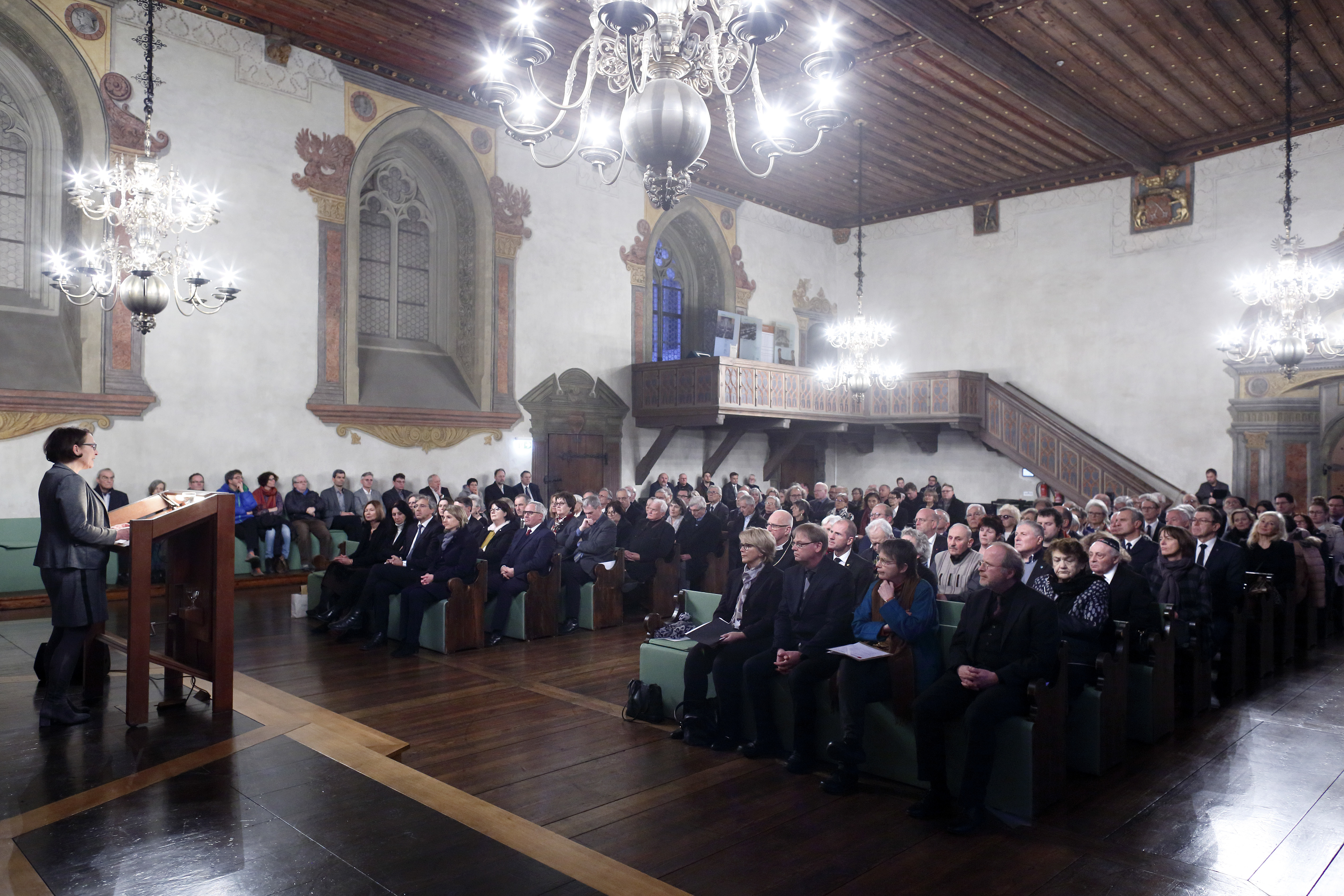 |
|
„75 years ago the concentration camp Auschwitz was liberated. Auschwitz, a place that stands for the indescribable, the unthinkable crime of the National Socialists. Crimes and atrocities that are both unimaginable and incomprehensible. And yet these events are part of our German identity, as they shape our Basic Law and our common basic understanding and commitment to democracy, human dignity and peace. This is not, and never has been, about a cult of guilt or a mark of shame that is so often invoked to keep a national identity small. It is simply about the responsibility that we all have to ensure that history does not repeat itself. That is and must be the basic understanding of each of us.” (Mayor of Regensburg, Mrs. Gertrud Maltz-Schwarzfischer, 2020)
|
|
| |
 |
PARTNER NEWS - Remembrance Walk „Concentration Camp Colosseum 23 April 1945”
|
| |
|


|
|
Since 2015 public authorities from Regensburg are calling to take part on the remembrance walk which has six stations. On each station a different organisation or initative has the word to remember individual persons, resistance movements, all victims of fascism and anitisemitism. The remembrance walk on 23 April is accompanied by a programm around that day with exhibitions, lectures and concerts.
„Representatives from all areas of our diverse urban society are here today. In this diversity and unity lies the key to a common, happy and free future for all of us. A society where there is room for all of us. For each and every one of us.” (3. Mayor of Regensburg, Mr. Jürgen Huber 2019)
From 19 March 1945 to 23 April 1945, a subcamp of the Flossenbürg concentration camp was located in Regensburg "Colosseum". The Regensburg subcamp was the last "foundation" of a branch office in Flossenbürger concentration camp complex, which included a total of over 80 subcamps in Bavaria, Bohemia and Saxony.
On April 23, 1945, at a demonstration, which was mainly carried by Regensburg women, cathedral preacher Johann Maier asked for a handover without a fight, so that the city would not be damaged even more or to avoid further victims. The following day he was publicly executed for "sabotage" together with the Regensburg citizen Josef Zirkl and the retired gendarmerie officer Michael Lottner.
|
|
| |
 |
PARTNER NEWS - Remembrance event „Book burning 12 May 1933”
|
| |
|
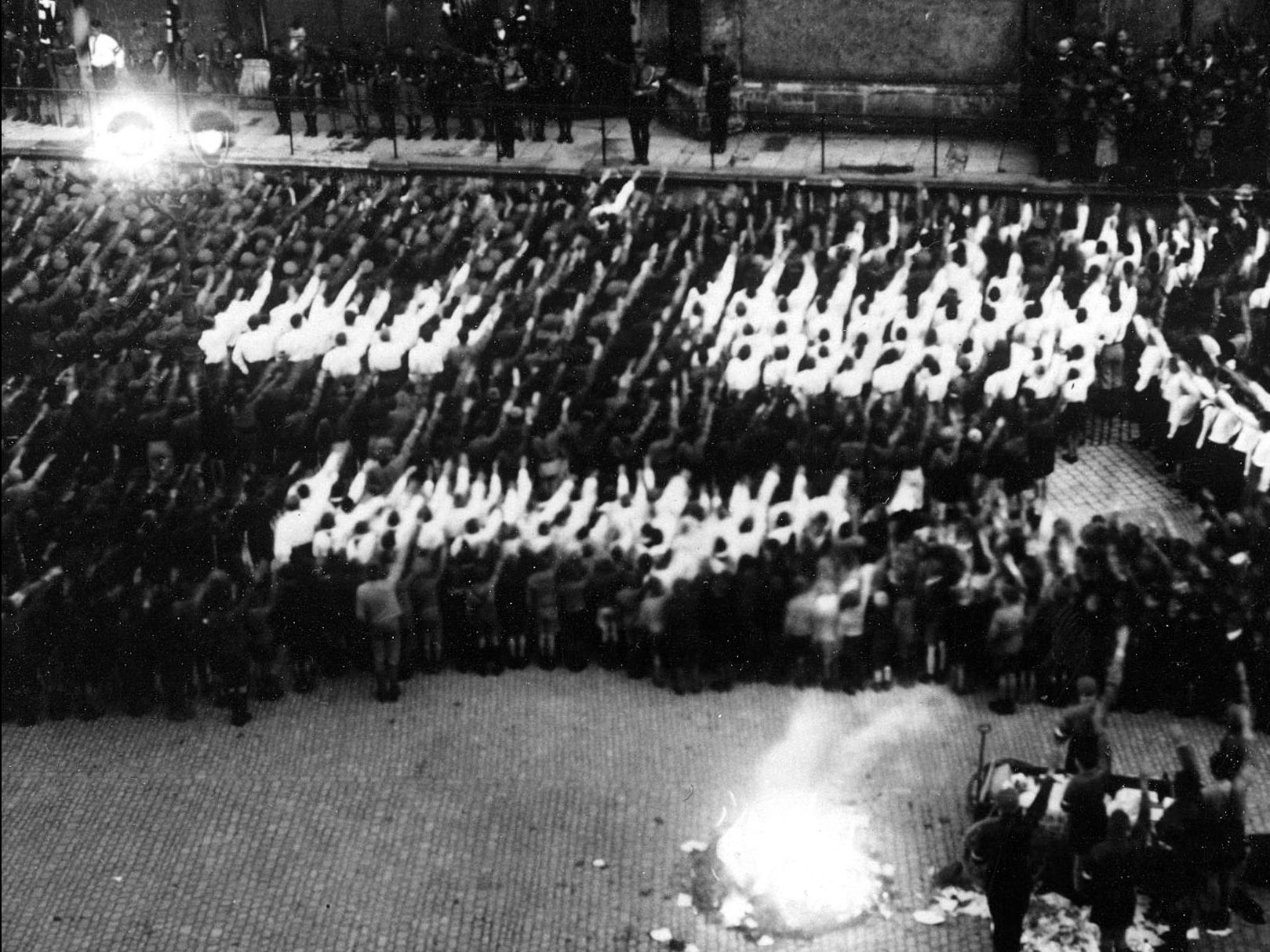
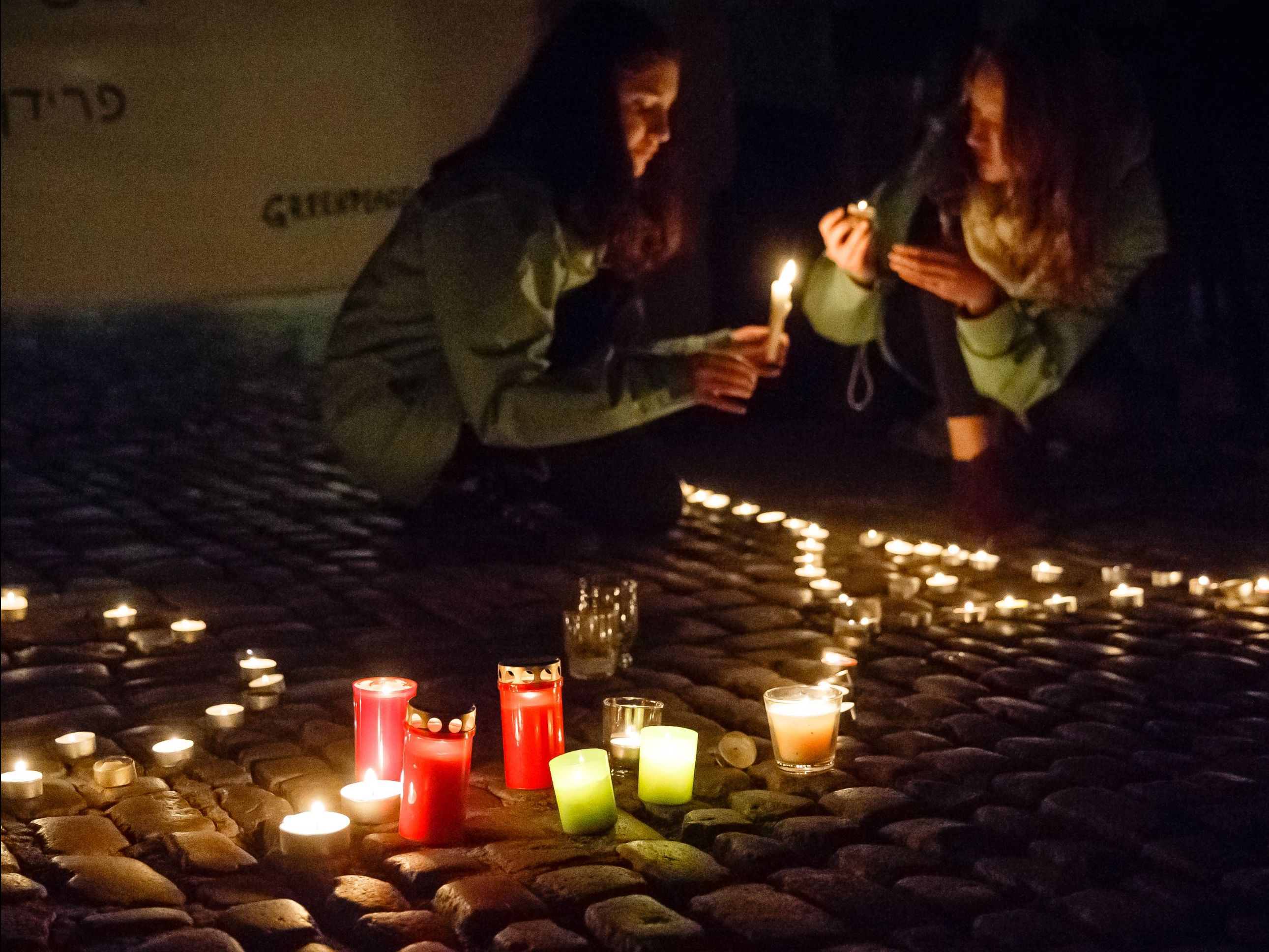
|
|
In 70 German cities blazed between spring and autumn 1933 the funeral pyres with books, including in Regensburg. The book burning took place on 12 May 1933 on the Neupfarrplatz. It was organized by the local Hitler Youth. Between spring and autumn 1933, the pyres were blazing in a total of 70 German cities. No fewer than 93 burns were counted in the Reich at that time. From the very beginning, the National Socialists were concerned with the destruction and suppression of the entire opposition, including those in the cultural sector. The book-burnings in particular can almost be regarded as a symbol of the spirit of annihilation of this criminal regime, at the end of which millions of people were murdered and large parts of the continent devastated.
"That was just foreplay. Where you burn books, you burn people in the end." (Heinrich Heine)
|
|
| |
 |
PARTNER NEWS - Long Night of Democracy
|
| |
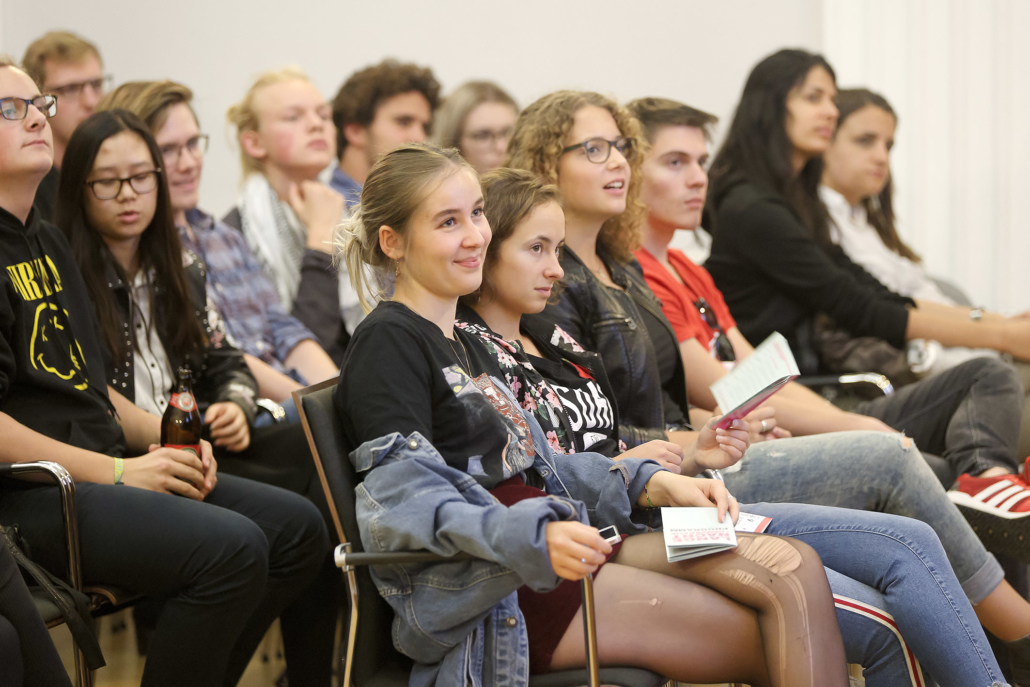 |
|
Democracy lives from the people who participate and are committed to it. Democracy is fragile and may need to be actively defended. People who are already committed should be strengthened in their commitment. According to the motto "Do good and talk about it", commitment is made known and appreciated. People who are not yet involved should be motivated and encouraged to become active.
The "Long Night of Democracy" (LNdD) took place in ten municipalities throughout Bavaria in the night from 15 to 16 September 2018. The aim of this event was to bring politicians, journalists, political educators and citizens together to reflect on and celebrate democracy. The LNdD was intended to provide a platform for events by various associations, federations, organisations and private individuals, which would enable young people and adults to experience democracy as a way of life in a variety of ways. In different formats, it should be possible to talk, philosophize and argue about our democracy, as well as to celebrate, laugh, enjoy music and culture together.
The next LNdD is planned in 2020.
Long Night of Democracy
|
|
|
|
|
| |
|
If you have received this newsletter, you have been included on one or more of the Danube Transnational Programme/projects postal mailing lists. We are committed to respect and protect the privacy of personal data collected. We regard your personal data as confidential information and will never communicate it to third parties. Your personal data are used mainly for the express purpose of receiving the newsletter. Your mailing details may also be used by the DTP and its projects for information and dissemination purposes strictly related to the programme and its projects. If you prefer not to receive more of this newsletter and your data not to be used for dissemination purposes, you can unsubscribe by sending a reply email.
|
|
|
|
|
|
